How we treat each other matters – and it’s a reason to buy (or not)
Shelton Stat of the Week
When choosing which company to buy from, paying employees a living wage is the most important factor in deciding which companies to buy from, assuming price and quality are similar. — Eco Pulse®, 2021
Despite the fact that the recently departed leader of our country treated his employees very badly, publicly berating and humiliating them if they dared to disagree with him, that sort of behavior doesn’t fly in corporate America – with consumers.
Back in March 2020, when the pandemic began shutting down America, Shelton Group jumped into social media – both mainstream and fringe channels. We wanted to see how the tone, sentiment and general conversation related to the broad wheelhouse of sustainability (people and the planet) were changing as a result of COVID-19. We published a whole report on what we found, and it really highlights the unrest and discomfort brewing in our country that exploded into view last summer. (You can download the report here.) But one result I want to highlight here emerged as a key loud and clear theme: how companies treat their employees throughout the pandemic has a massive impact on how people perceive those companies and on people’s willingness to buy from them. Here’s one of my favorite examples:
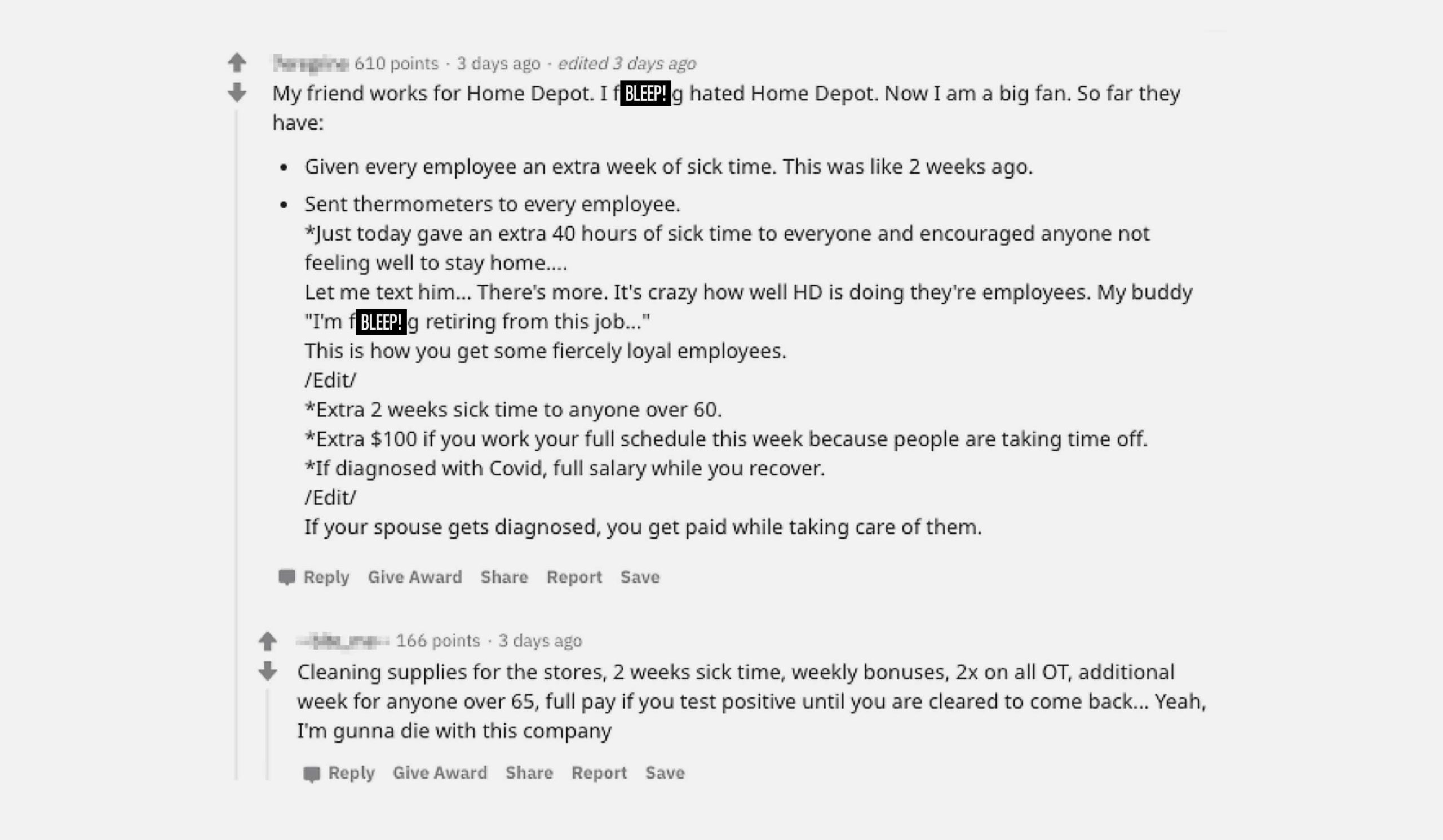
Edelman quantified this sentiment as well in a special edition of their Trust Barometer study:
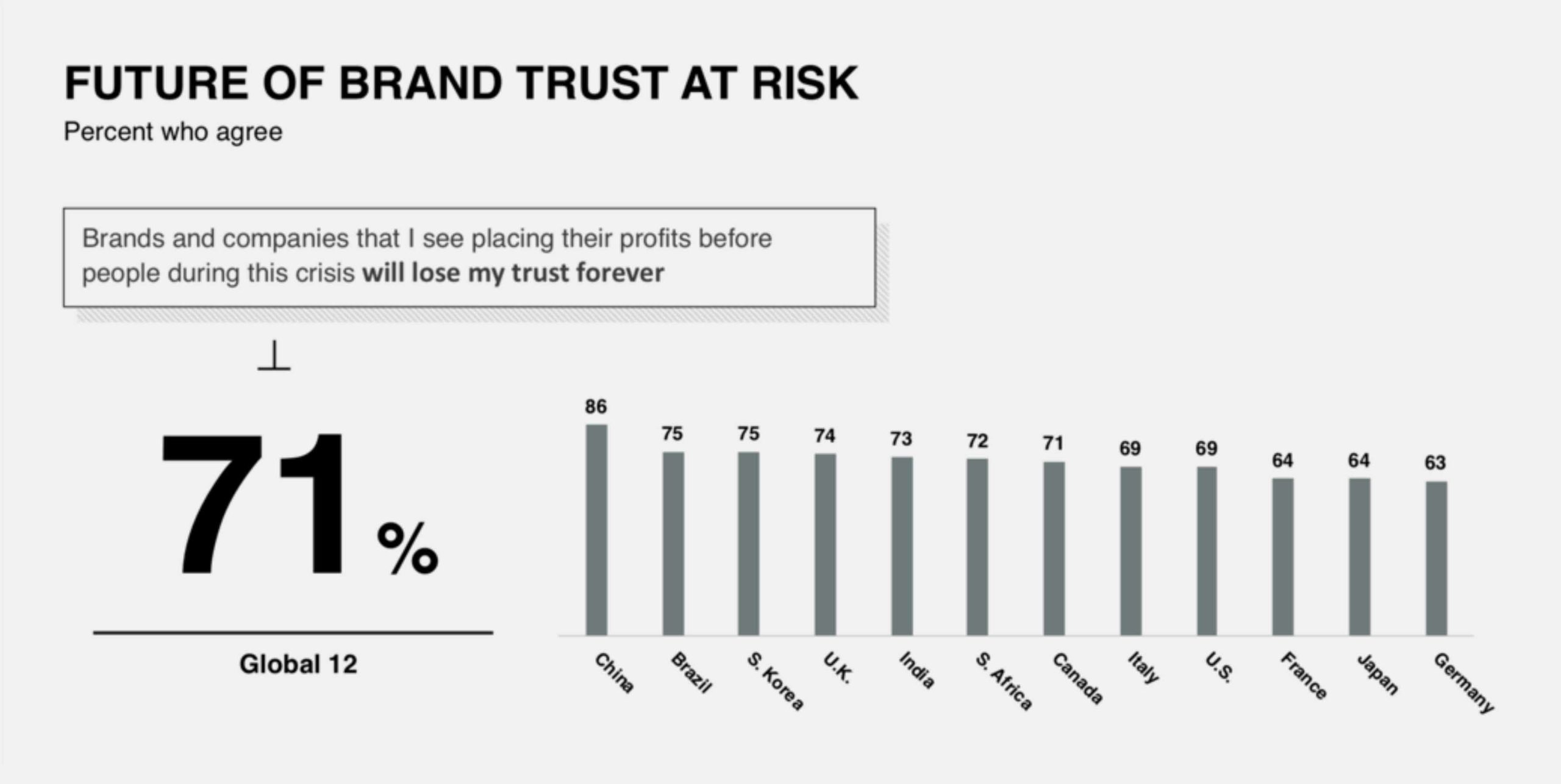
This is actually an emerging theme we’ve seen for years in our research. Here’s an example from the point of view of business decision-makers, captured in the B2B world back in 2017:
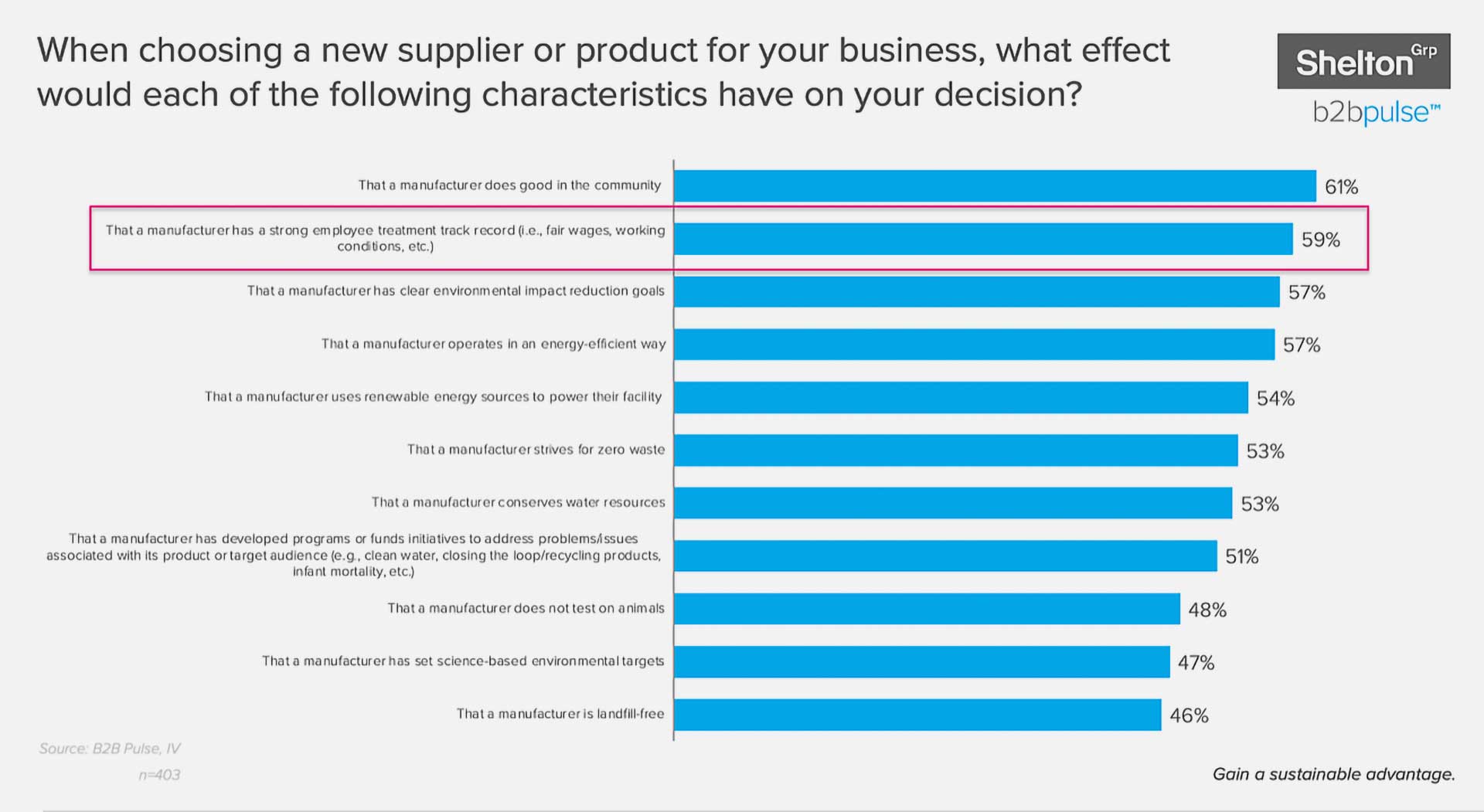
In May 2020, we worked to begin quantifying the weight of employee treatment versus environmental action in terms of communications – what story do consumers want to hear from companies — and found that employee treatment indeed came out on top:
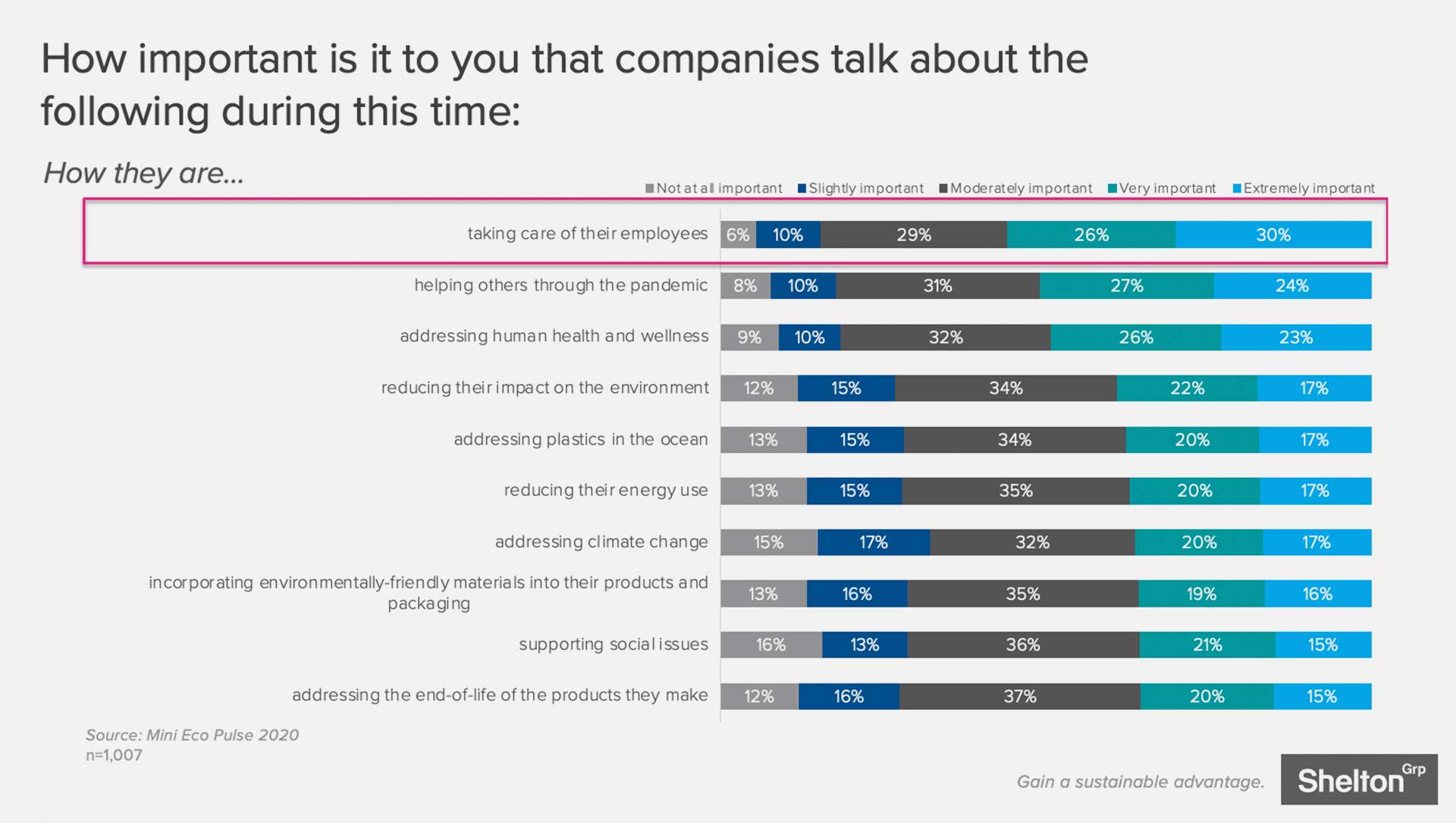
At the end of last year, we went back in the field with an express mission: understand what makes a company good in the minds of consumers. What does a company need to be doing to actually be considered good to Americans broadly, and how does being seen as good put that company and its brands in the consideration set for preference and purchase? We are heads-down on analyzing the data, but, perhaps not surprisingly, how a company treats its employees is at the top of the list of what companies should be doing to be considered good:
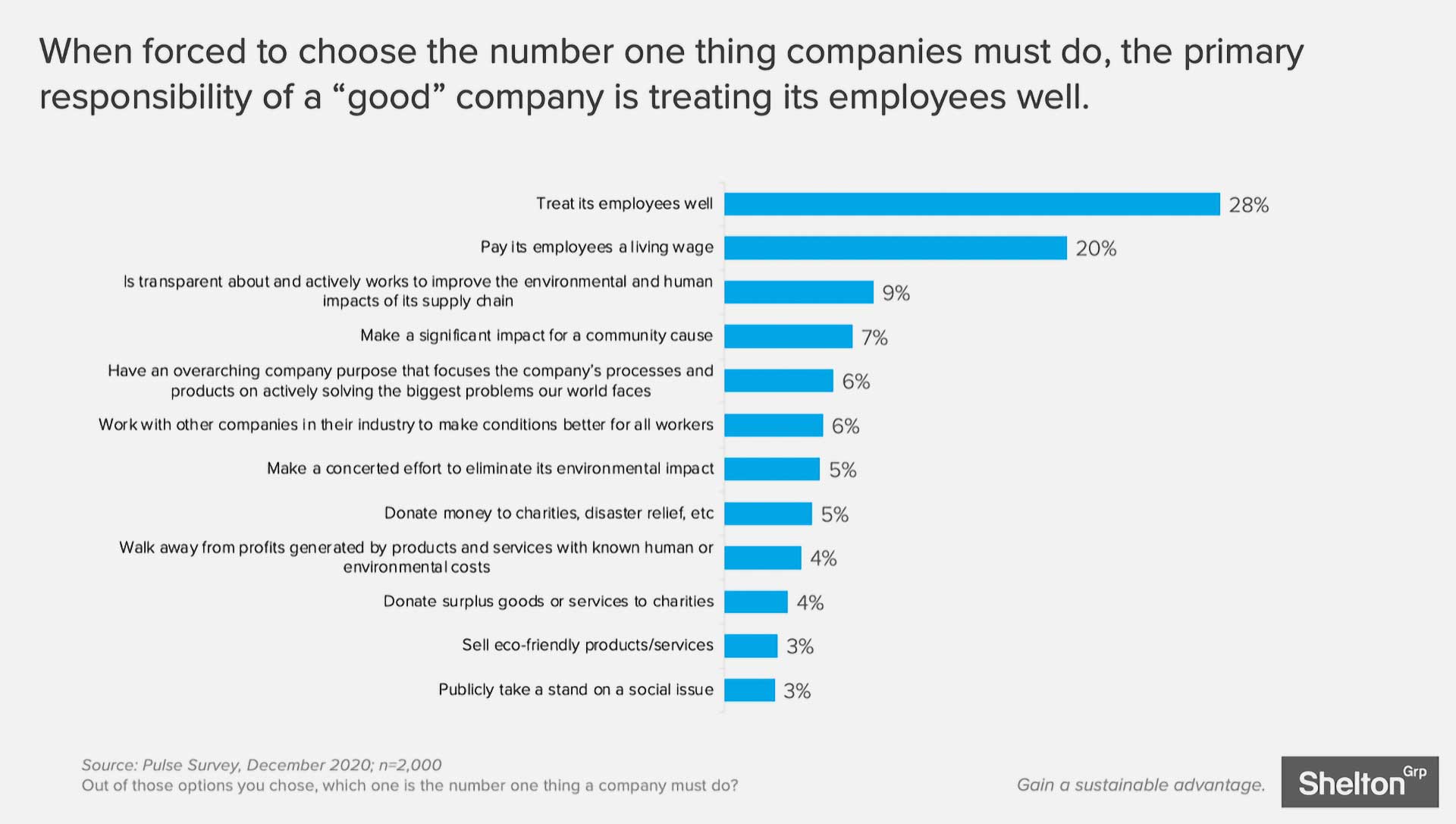
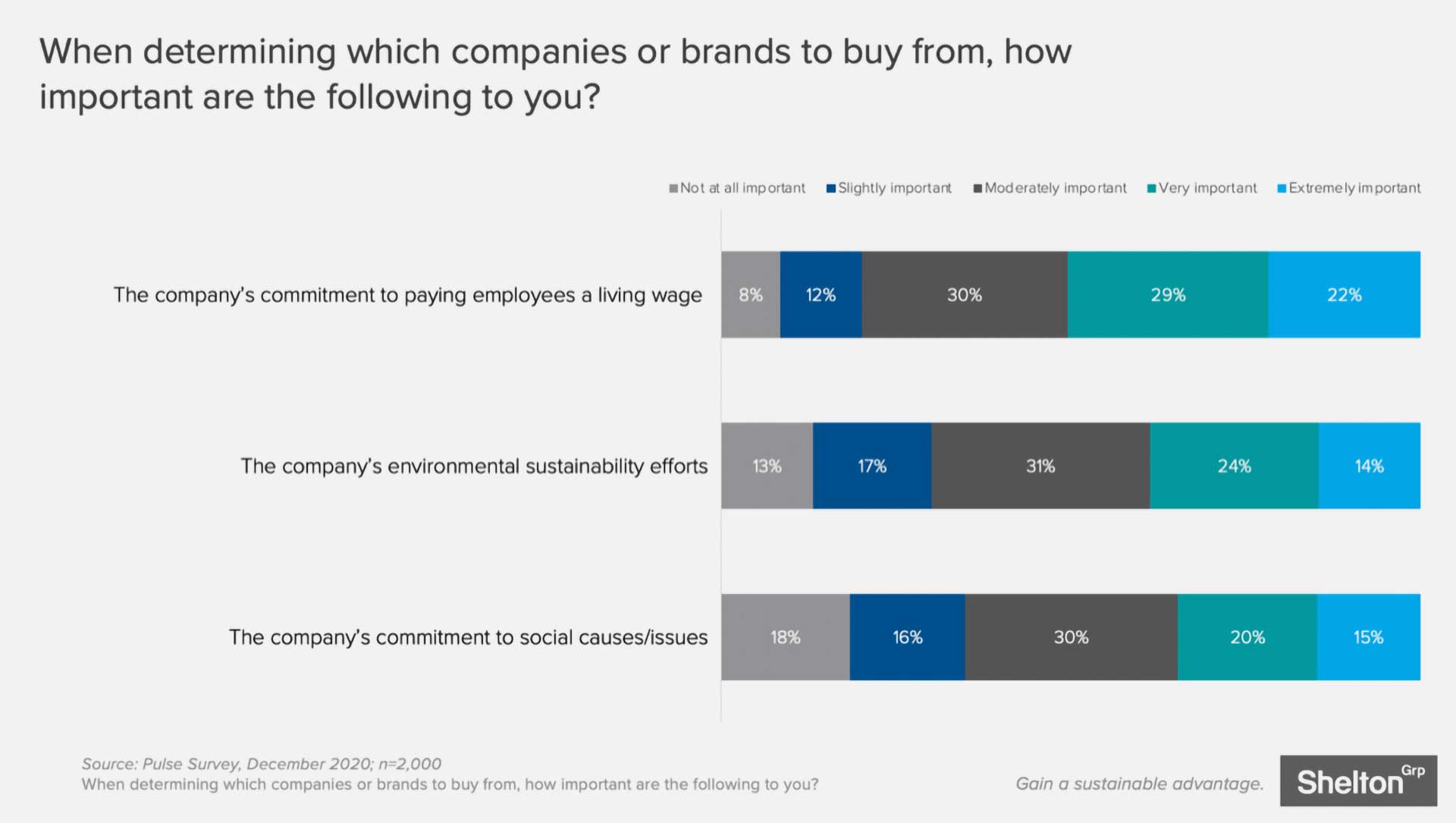
I’ll be unveiling the full spectrum of what we’ve learned about how Americans determine if a company is good during my GreenBiz 21 session on February 10 at 11:45 PST/2:45 EST, and we’ll be publishing a full report in April. But suffice it to say, if you want to be seen as a Good Company, you need to take care of your people.

Coronavirus brings thorny issue of worker treatment to the marketing fore – Marketing Dive
According to Marketing Dive, which examines impactful news and trends that shape marketing and advertising, a growing body of research signals that consumers are putting more value on companies that treat their workers well during the public health crisis. In an interview with the organization, Tensie Whelan, director of the NYU Stern Center for Sustainable Business, says, “Marketing folks can point to the risk for [a brand] in not taking care of their people. There’s a clear marketing connection.” Read more…

Successful companies live up to this ancient Greek ideal
– Harvard Business Review
Businesses with a strong sense of corporate philotimy – a concept that encompasses decency, dignity, honesty and altruism – consistently outperform less-virtuous companies, according to an article in the Harvard Business Review. For example, companies with a culture rooted in sincere empathy treat their employees well. They are therefore able to attract and retain the best human capital, which enables them to create the most-innovative products and services. The result is that these companies are more valued by investors and customers. Read more…
Engaging Middle America In Recycling Solutions
Before COVID-19, 41% of Americans wanted to be seen as someone who buys green products, and many could cite an example of a brand they’d purchased (or not purchased) because of the environmental record of the manufacturer. Now, in the middle of the pandemic, the numbers have dropped dramatically. The big question is, what does this mean for engaging Americans in their number one green activity: recycling? Another question is, what does it mean for companies’ sustainability brand?
Our latest report answers these questions by digging into current consumer attitudes, how they impact consumer behavior, and how organizations should respond to ensure recycling – and other green behaviors – keep happening.

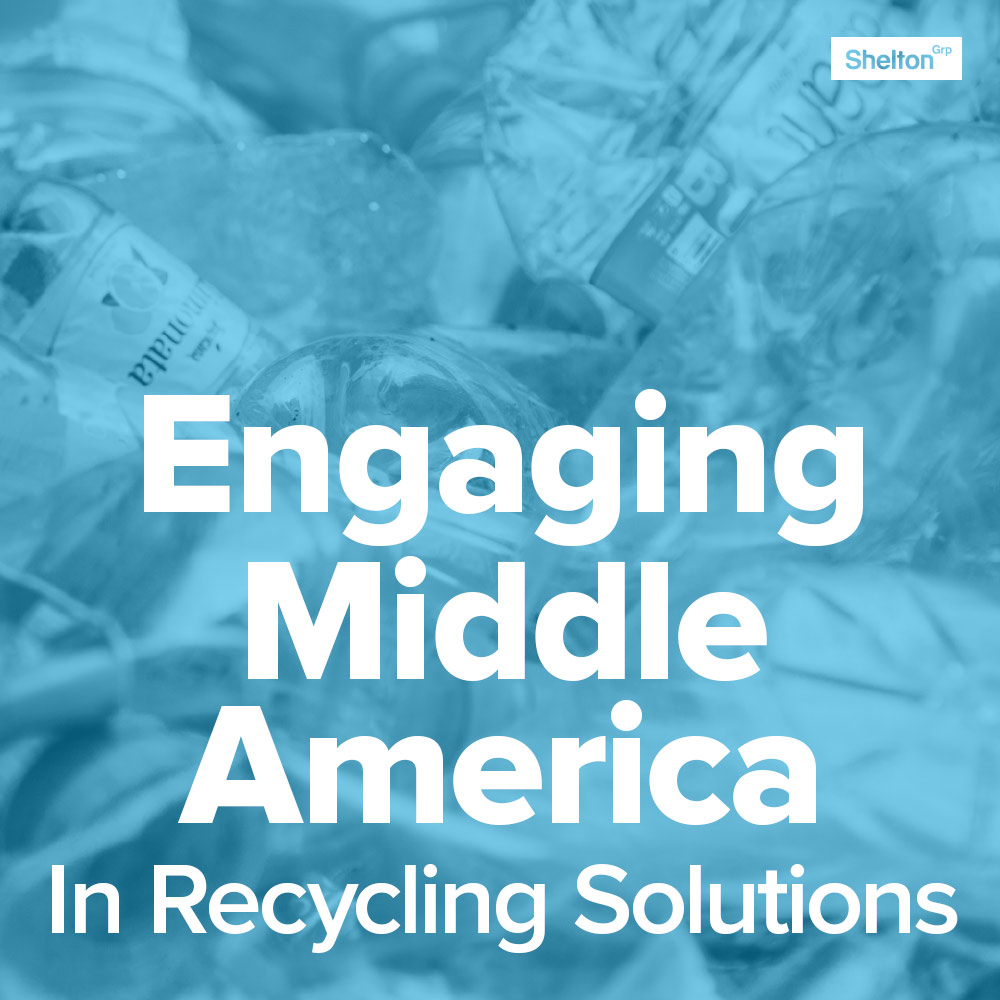
TAGS:Corporate Sustainability, Efficiency & Conservation, Environmental Issues